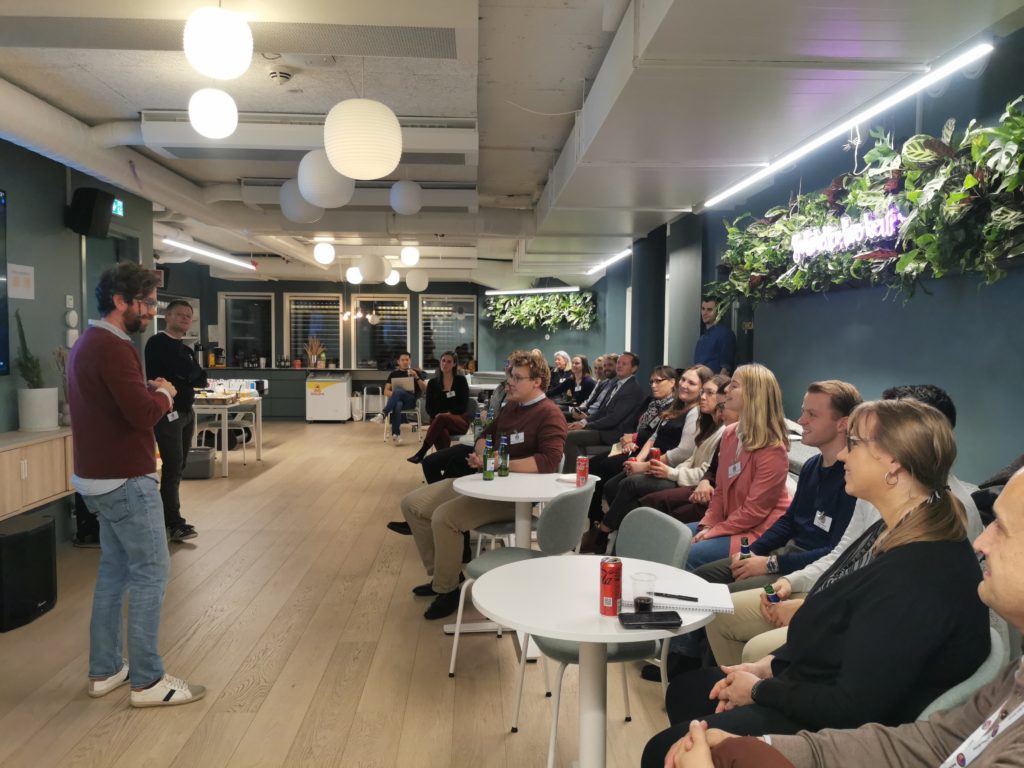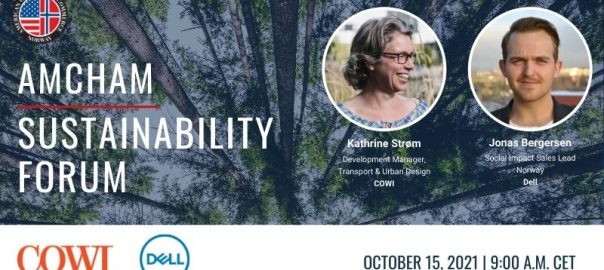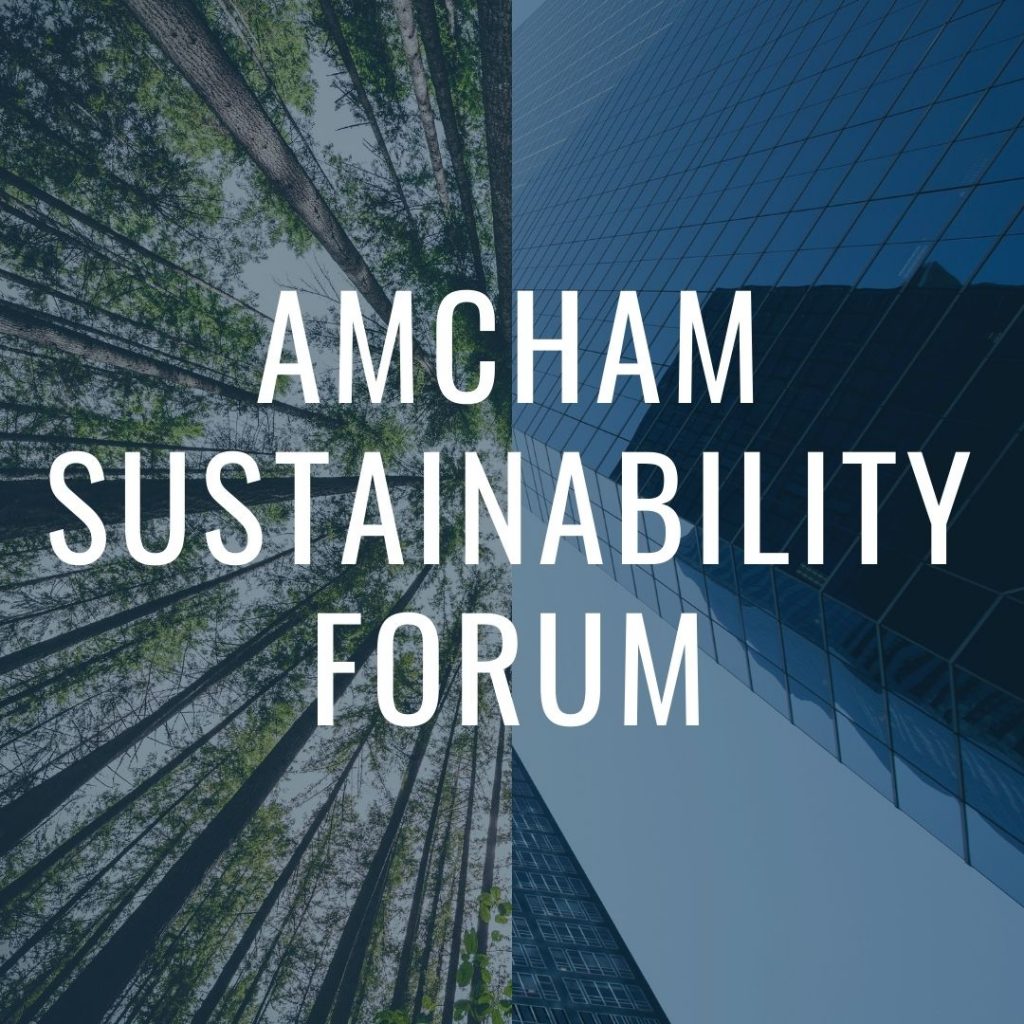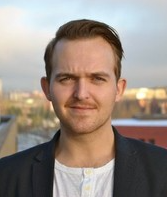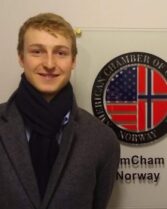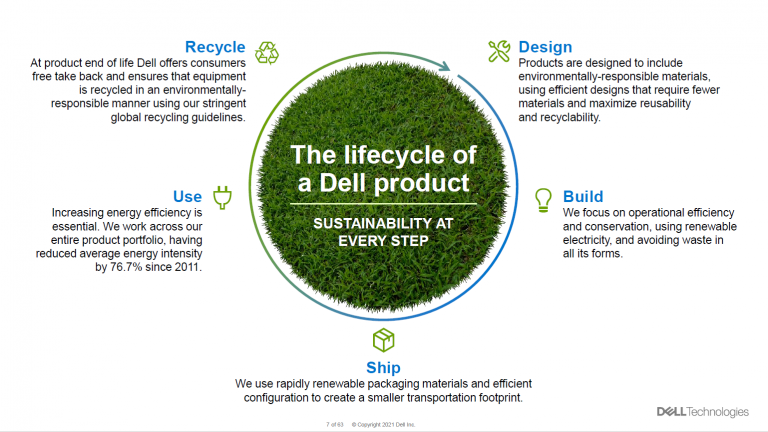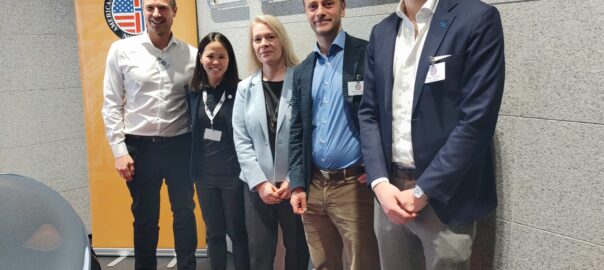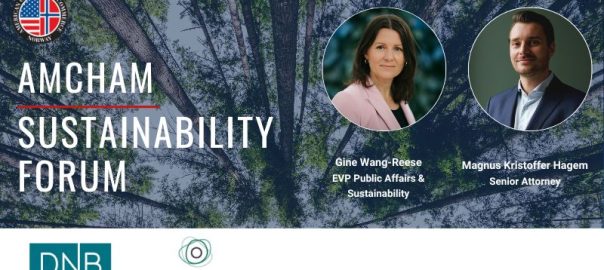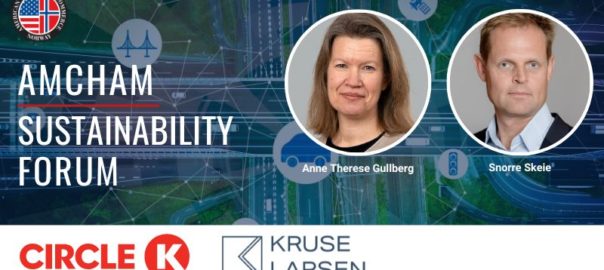Rising Leaders Afterwork with Airthings: From an Idea to a Global Scale Up
Rising Leaders and AmCham members gathered at Airthings’ modern Oslo headquarters.
CTO and Co-Founder Erlend Bolle kicked off the meeting with a candid, humorous retelling of the Airthings story, highlighting key moments in their incredible journey from Norway-based startup to international scaleup.
Founded in 2008, the company’s products have made radon detection easy to deploy, as it is accurate and user friendly. The products have changed access to monitoring and analyzing radon and other indoor air pollutants.
Fast forward to today, and the company has established offices in the US, Canada, and Sweden, with over 140 employees from over 30 nations. Over 300K monitors have been sold worldwide.
Creating sustainable hardware products from start to finish - and everything in between
Airthings’ Sustainability Manager Erwin Hasselbrinck shared his background from Greenpeace, his passion for the environment and how he approaches his mission of creating a sustainable hardware product from start to finish.
Hasselbrinck continues establishing Airthings’ circular principles – embedding UN Sustainable Development Goals into Airthings’ core business. The key has been to involve employees across all departments in the search and assessment of solutions to create circular and sustainable business practices and value chains.
With the recent launch of their newest indoor air quality monitor, the Space CO2 Mini, considered the company’s most sustainable product to date, they have managed to reduce carbon footprint by 50% compared to their first all-around product in the same category. Loaded with features, Space CO2 Mini is equipped with additional sensors for temperature, relative humidity, air pressure, noise, light, virus risk and occupancy.
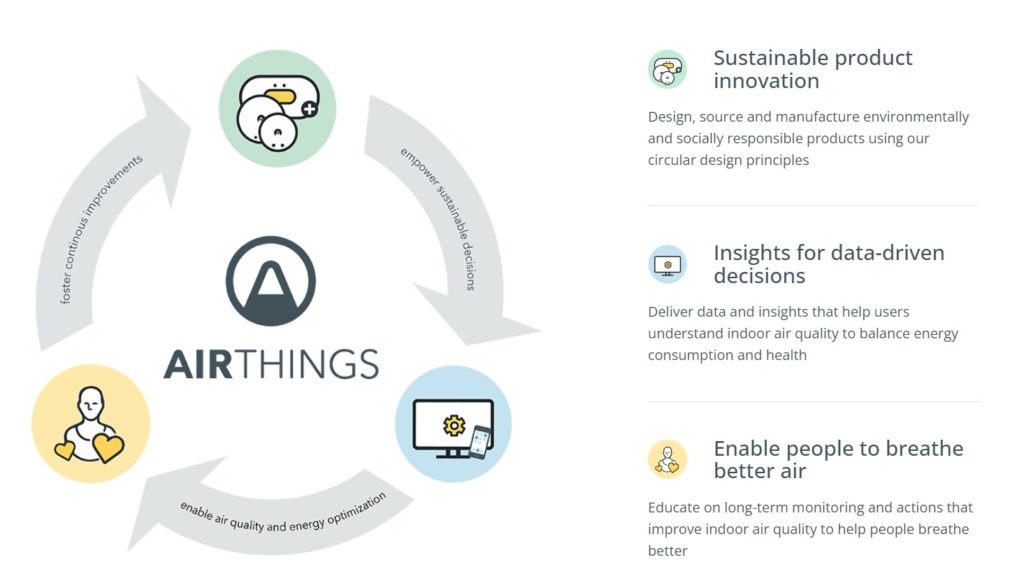
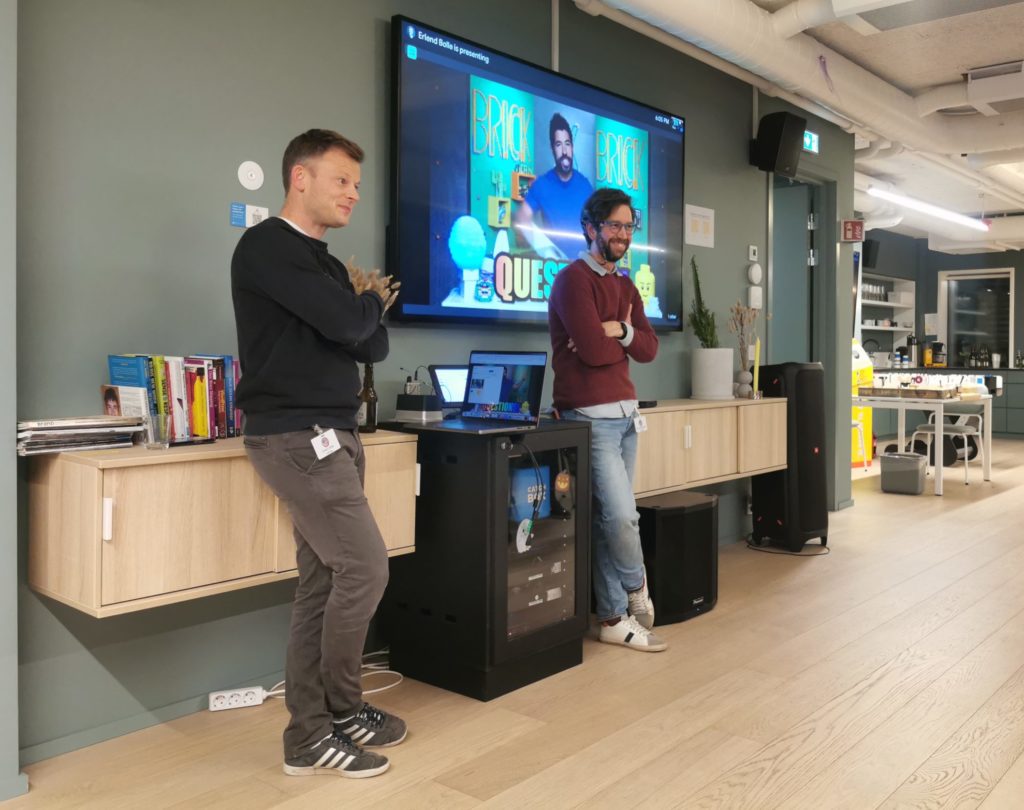
Not only is the hardware more sustainable, the addition of these new technologies and sensors helps facility managers to radically reduce energy consumption and use energy more efficiently while proactively fostering a healthy indoor air climate for occupants, benefiting both the planet and their bottom line.
As buildings use 40% of the world’s energy – and 30% of that comes from heating, ventilation, cooling, and lights – being able to make data-driven decisions, regulating according to when people are actually present, and reallocating energy usage when necessary, unlocks significant cost savings.
The presentations were followed by a highly engaging group discussion where participants could ask questions, followed by the opportunity to mingle with representatives from Airthings and AmCham member companies. AmCham thanks the Airthings team for their hospitality, willingness to share their stories and taking the time to answer questions from the group.
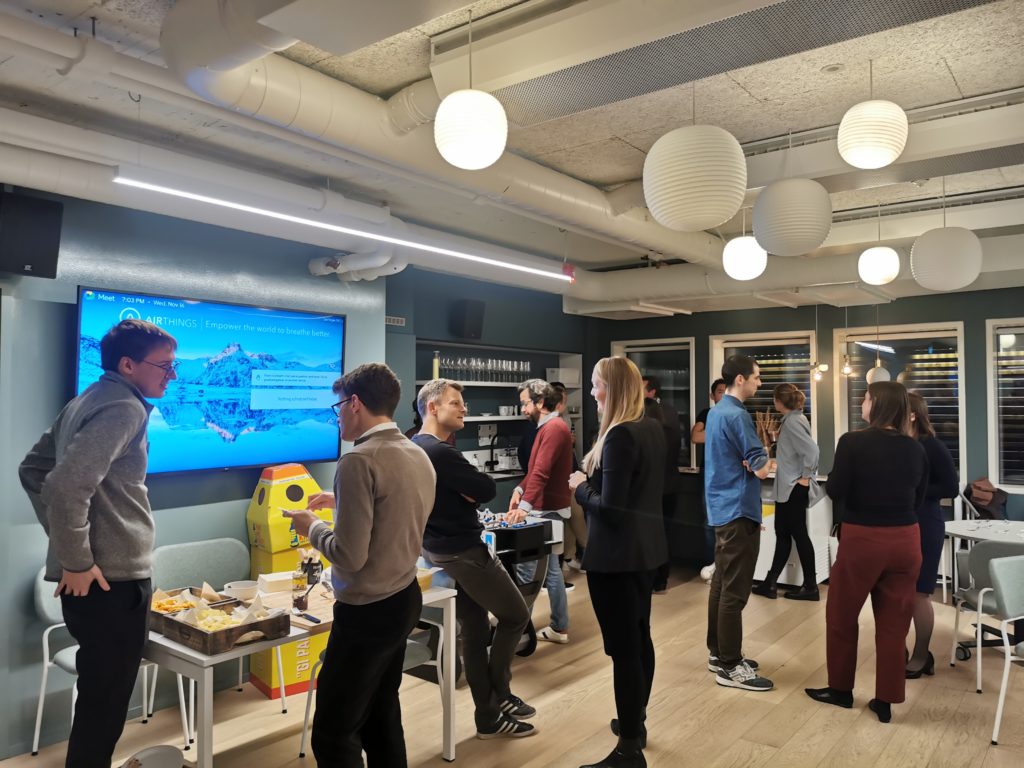
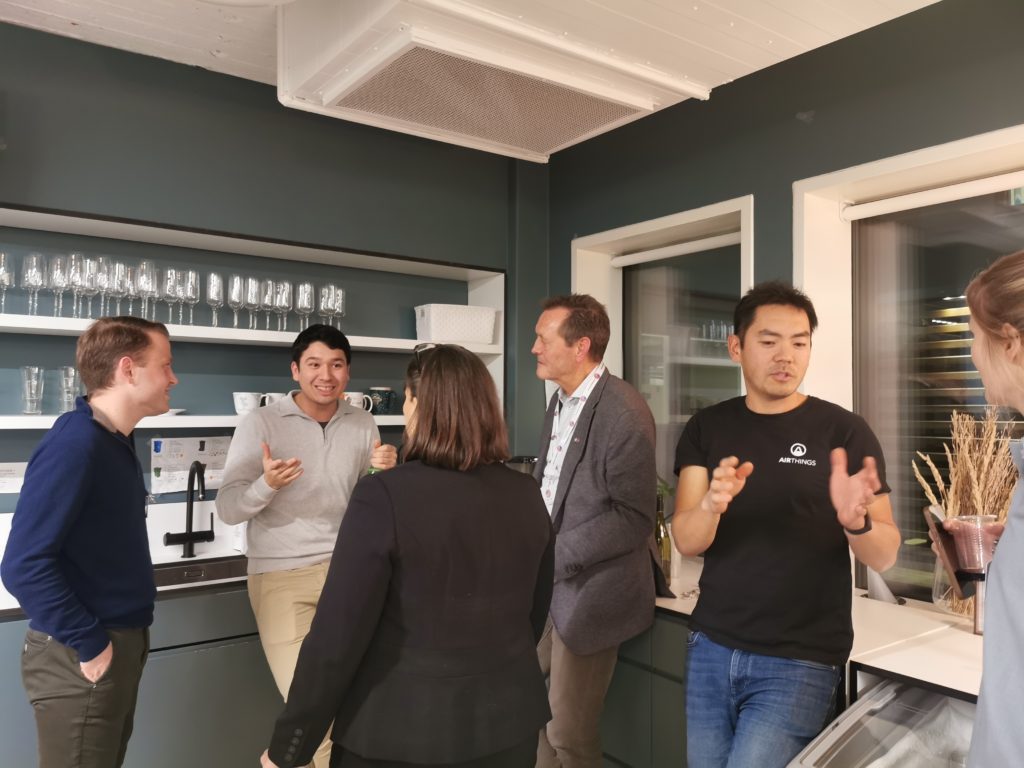
About the Rising Leaders Program
Rising Leaders, a joint AmCham-US Embassy initiative, brings together entrepreneurs, young professionals, and student leaders in an innovative program that promotes diversity and connects promising talent. Through the program, participants engage international business leaders, learn about AmCham member companies, explore careers, and gain business and leadership skills.
The 2021-2022 Rising Leaders class – comprised of 18 women and 10 men between the ages of 22 and 35 – bring with them experience from healthcare, classical music, urban planning, organizational psychology, immigration, engineering, communications, technology, teaching, economics, finance, and marketing. All 28 program participants have demonstrated leadership, entrepreneurial, and/or business excellence in their educational pursuits and careers thus far.
For more information about the program, or to learn how your organization can get involved, please contact Madeleine Brekke.
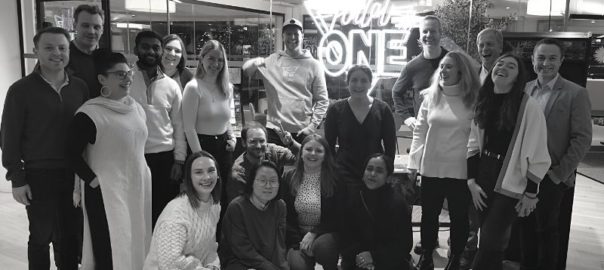
Rising Leaders Afterwork with PortalOne
For the last afterwork of 2022 and the program finale, Rising Leaders participants and AmCham members had the opportunity to visit hybrid gaming company and Norwegian unicorn, PortalOne’s brand new offices at Aker Brygge.
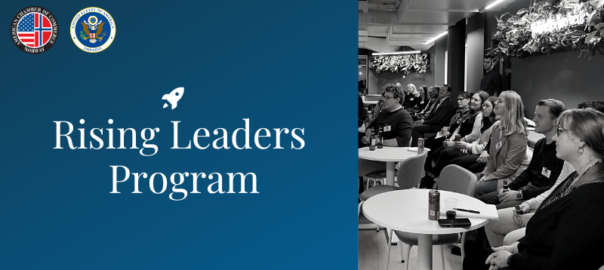
Rising Leaders Afterwork with Airthings: From an Idea to a Global Scale Up
Rising Leaders and AmCham members gathered at Airthings’ Oslo headquarters in November. CTO and Co-Founder Erlend Bolle kicked off the meeting with a candid, humorous retelling or the Airthings story, highlighting key moments in their incredible journey from Norway-based startup to international scaleup.
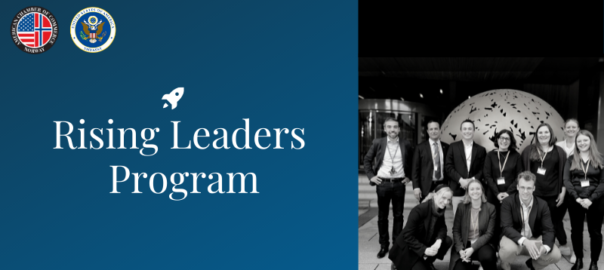
Rising Leaders: External Perspectives with Pablo Barrera Lopez
Rising Leaders participants visited Yara International’s headquarters where they were welcomed by Senior Vice President of Food Systems Transformation, Pablo Barrera Lopez.

